Faculty of Medical Science
Introduction
Medical Science is an applied knowledge, its purpose is to maintain and promote health, cure diseases and rehabilitate the injured. This purpose is achieved by recognizing diseases, diagnosis, treatment and prevention of their occurrence. Medical knowledge is based on a wide range of fields. It is the use of knowledge-based technologies and deductive reasoning to reach the solution of clinical problems.
In the compilation of the new curriculum, the latest developments in the field of medical medicine in foreign universities are studied, and the latest changes in this field have been made in the programs of this field according to their educational and practical needs in our country. It should be noted.
About the Faculty:
Faculty of Medical Science of Khatam-Al-Nabieen University (PBUH) was established in 2010 with an official license from the Ministry of Higher Education of Afghanistan and started recruiting and accepting students in the spring of 2010. This faculty has two departments and six committees and organizes educational programs at the MD level daily in the field of therapeutic medicine. So far, i.e. in 2022, the medical school has had 6 graduation courses.
| Faculty Name | Medical Science |
| Departments | Internal Medicine Department |
| Department of Public Health | |
| Committees | Quality assurance committee |
| Discipline Committee | |
| Planning Committee | |
| Research committee | |
| Electronic Education Committee | |
| Academic curriculum committee |
Buildings and classes
Faculty of Medical Medicine of Khatam-al-Nabieen (PBUH) University is in proper repair and equipped with necessary educational and comfort facilities. This faculty has 14 well-equipped classrooms with facilities such as whiteboard, projector, LCD, suitable chairs and sufficient light.
Laboratories
Faculty of Medical Medicine of Khatam-al-Nabieen (PBUH) University has 13 well-equipped laboratories, including anatomy, histology, pathology, biochemistry, chemistry, microbiology, biology and clinical skills laboratories.
Library and IT center
This faculty has a specialized library including textbooks and study books, as well as an information technology (IT) center that provides services for students to use every day from 8:00 am to 4:00 pm.
General Needs Assessment
An overview of the current state of health services in the country clearly shows that only residents of large cities have access to health services and facilities in a relative manner; But the oppressed classes and those who live in the remote areas of the country, unfortunately, have not benefited from the basic facilities of health services, and this is due to the lack of professional staff, their lack of proper distribution, and still limited medical education facilities. According to the estimate that has been made, the total number of existing doctors cannot provide even half of the health needs of the society. To solve this problem, you should try to increase the professional force by expanding the medical schools in the country and using all the facilities of health services. For this purpose, it requires that we establish and run such educational centers within the framework of the laws of the honorable Ministry of Higher Education of the country so that we can train professional and efficient people with proper education and increase the quantity and quality of medical education services so that after graduation in To meet the needs of society in all parts of the country.
In order to establish the field of therapeutic medicine in Khatam al-Nabieen University (PBUH), a general needs assessment was conducted in the form of a questionnaire with the participation of the following authorities:
– Ministry of Higher Education;
-Ministry of Public Health;
– Aliabad Hospital;
– Republic Hospital;
– Esteqlal Hospital;
– Infectious Disease of Kabul Hospital;
– Tuberculosis Hospital;
As a result, the aforementioned authorities confirmed the necessity of establishing a field of therapeutic medicine in Khatam al-Nabieen (PBUH) University.
Training Needs Assessment
After the implementation of the general needs assessment, the educational needs assessment was done. In this needs assessment, in order to provide students with knowledge, skills, and behavioral changes, the necessary information was collected from the above-mentioned authorities in the form of a questionnaire, and their useful ideas were widely considered in the content of the curriculum.
Creating a successful curriculum requires considering various aspects. In today’s world, a successful university is one that responds to the real needs of human society and can train capable and efficient graduates; People who are able to meet the needs of social institutions and, as a kind of feedback, help to strengthen the effective cycles of progress and development of science by being employed in the academic faculty of universities or trying to theorize.
Due to the fact that our country Afghanistan has faced important challenges in the past, and due to the fact that it is in the initial stages of moving towards the development of health services, there is an urgent need to develop human resources in the field of medical sciences.
Graduates of this field, according to the training they receive, can work at the management levels of organizations and ministries related to health services, and provide health services in hospitals, clinics, and other health centers, or in higher education centers. Teach students. In addition, graduates of this course can work in research and research work, which is of great importance in large institutions today.
Educational Goals
- Training of professional staff equipped with Islamic and medical ethics;
- Familiarizing students with topics and themes of medical sciences in various fields;
- Training efficient people with scientific and practical ability who have the ability to prevent and treat diseases and can be effective in the health centers of the country;
- Generalization and expansion of the professional forces needed by the country;
- Enabling students to use the latest scientific resources and take advantage of new information;
- Getting to know the priorities and health issues of the region and the world;
- Making students capable and strong in order to try to provide solutions for the development of health in the society and tending to justice in health
Introduction of content
1- The course of study
According to the educational regulations of this university, the duration of study in this course is at least six years and at most nine years. Each student can choose a minimum of 17 credits and a maximum of 21 credits in each semester.
This academic course includes the following three stages:
- Paraclinic (Basic)
- Clinic
- Stage
1- Paraclinic: The duration of this stage is 2 years. In this stage, students take basic courses and the first stage of general and specific courses.
Purpose: The purpose of this stage is to teach the structure of the human body and its physiological actions, as well as to know the biological and pathological factors and the body’s defense mechanisms against them and the principles of human body injuries and to familiarize students with the principles of health issues. The maximum duration in this stage is 3 years.
2- Clinic: The purpose of this stage is to diagnose diseases from a clinical and laboratory point of view and to acquire the necessary skills in using thought and intellectual independence and quick conclusions in order to deal logically and correctly with the patient and design preventive and treatment measures. The duration of this stage is 3 years, during which he completed practical courses in internal medicine, surgery, pediatrics, obstetrics, gynecology, eye, ear and throat, mental and neurological, radiology, skin and toxicology, and the remaining theory units from general and specific courses.
The clinical course consists of two parts:
- Teaching students at the bedside of patients in hospitals;
- Passing theoretical courses at the university: the maximum duration of passing this stage is 4 years.
3- The Stage period
The purpose of this stage is to develop skills and strengthen the power of decision-making and increase self-confidence, as well as directly dealing with diagnostic and treatment issues of the student and entrusting this responsibility to him. The optimal time for this course is one year, during which the students take courses in general internal medicine, surgery, pediatrics, obstetrics and gynecology, dermatology, epidemiology, ear and throat, eye, mental and neurological, forensic, infectious and tuberculosis courses. The place to take this course is only in staff hospitals.
Monograph (Thesis)
Goal: To challenge and reveal the individual and scientific abilities of students and also to teach them to acquire scientific and research skills in the future.
The monograph is 6 credits and each student must define its topic under the supervision of the supervisor at least one year before the completion of his academic course and defend it before graduating.
Internship and scientific course
In addition to passing the theoretical courses, the students of the therapeutic medicine course also pass the practical courses of different clinical departments in the hospitals in order to learn the process of diagnosis, treatment and follow-up of the patients through practical observation and apply their theoretical learning in the practical stage.
Suitability of practical and theoretical work
In order for the student to learn the vocabulary of each subject well, he needs to learn the theoretical topics in a practical way in laboratories and hospitals. About 57% of the topics are theory and 43% are practical.
Educational Methods
In the therapeutic medicine course, different educational methods are used according to the themes considered. In general, the methods used in teaching this field are one or a combination of the following methods.
1- Lecture method: This method is used in topics that have more fundamental and theoretical aspects and it is necessary to transfer a large amount of information to the learner. In this method, concepts and topics are verbally transmitted to students;
2- Exploratory method: When the students have obtained the first information about the field, it is time for the class to become active and the students are forced to think and find answers before the teacher proposes the answer. In order to fulfill this demand, students are asked to actively learn new knowledge and beliefs and participate in discussing and criticizing it with their professors and fellow students;
3- Question and answer method: To ensure the learning of the topic, part of the teaching process is devoted to question and answer from the students. This work is done both on previously taught topics and on new topics in order to strengthen the spirit of creativity and thinking in students and to provide the basis for their institutionalization due to the repetition and retelling of the topics.
4- Clinical training: When students have completed four academic semesters and have acquired a certain scientific mentality towards the field, they enter hospitals to apply what they have learned in the field of medicine;
5- Research and problem solving: In this method, students are given subjects according to their ability to increase their knowledge and information through further study and investigation, and problems are suggested for them to find solutions in the given time. report the results of their work;
6- Group work: One of the required human skills is the ability to communicate and work in a group with others. In some topics, guild members are divided into small groups of several people and they are given group work. The responsibility and privileges of work are given to everyone.
Student evaluation methods
Evaluation of students in the therapeutic medicine course is done using different methods. Out of the total 100 marks that are awarded to each subject as points, 60% of it is related to the written exam at the end of the semester, and the rest is related to matters such as regular attendance in the class, doing homework, solving exercises, activities inside the class, etc. at the discretion of the teacher. , is awarded
The distribution of grades in total is as follows:
- Regular attendance in class while maintaining general order (10%)
- Factory presentations and activities such as: questions and answers from past and current topics (10%)
- Mid-semester evaluation: This evaluation is done at the end of the seventh week, which is called the 20% exam (20%).
Evaluation at the end of the semester (final exam) This evaluation is done in writing at the end of the semester (60%).
Dean of the faculty
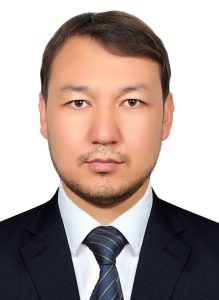
Dr. Mohammad Jawad Jawad
Contact number: 0771112600
Email address: m.jawad@knu.edu.af
Administrative position: Dean of the Faculty of Therapeutic Medicine
Education degree: Internal medicine specialist (MD)
Academic rank: Professor
Education:
- Internal thoracic specialist course: Ibn Sina Chest Hospital, Kabul 2018-2019
- Therapeutic medicine: Khatam al-Nabiin University (PBUH), Kabul, 2015-2016
- Diploma: Bamiyan Center High School 2009
Work Experiences
- Professor of Khatam al-Nabiyin University (pbuh) from 2013 to now;
- Professor at Rabia Balkhi University 1400-1397;
- Professor of Swiss Afghan Institute of Higher Education 1400-1401;
- Internal medicine specialist of Kadri Hospital of Khatam al-Nabiin (pbuh) 1400- until now
Scientific works:
A) Internal articles
b) International articles
Vision:
The Faculty of Medical Science intends to be a leader in improving the health of society by training efficient workers, providing standard health services and applied research in the region.
Mission:
Training committed and expert human resources, creating a platform for conducting practical and basic research, providing health services in accordance with global standards in order to help the health of society and the health needs of the country.
The Faculty Professors
The Faculty of Medical Science has 8 full-time academic staff with master’s, Ph.D. and specialist degrees. In addition, in order to complete its teaching staff, the faculty uses professors outside the scientific staff on a contractual basis. The profile of the professors of the faculty is presented in the following table:
| Nu | Full name | Education Field | Educational Rank | Academic rank |
| 1 | Dr. Ali Ahmad Nasiri Makarem Bakhtiari | Medical Science | Master | Professor |
| 2 | Dr. Saifullah Niazi | Medical Science | MD MD, Internal Specialist | Asst.Professor |
| 3 | Dr. Moh.Javad Javad | Medical Science | MD, Internal Specialist | Asst.Professor |
| 4 | Dr. Sayed Yousuf Mosavi | Physiology | Ph.D. | Professor |
| 5 | Dr. Moh.Latif Nazari | Medical Science | Master | Professor |
| 6 | Dr. Khan Ali Mohammadi | Public Health | Ph.D. | Professor |
| 7 | Dr. Jafar Ali Muradi | Medical Science | Master | Asst.Professor |
| 8 | Professor Musa Bashir | Public Health | Master | Asst.Professor |
.
 1- Dr. Mohammad Javad Javad
1- Dr. Mohammad Javad Javad
Contact number: 0771112600
Email address: m.jawad@knu.edu.af
Administrative position: Dean of the Faculty of Therapeutic Medicine
Education degree: Internal medicine specialist (MD)
Academic rank: Professor
Education:
- Internal thoracic specialist course: Ibn Sina Chest Hospital, Kabul 2018-2019
- Therapeutic medicine: Khatam al-Nabiin University (PBUH), Kabul, 2015-2016
- Diploma: Bamiyan Center High School 2009
Work Experiences
- Professor of Khatam al-Nabiyin University (pbuh) from 2013 to now;
- Professor at Rabia Balkhi University 1400-1397;
- Professor of Swiss Afghan Institute of Higher Education 1400-1401;
- Internal medicine specialist of Kadri Hospital of Khatam al-Nabiin (pbuh) 1400- until now
Scientific works:
.
.
2- Dr. Ali Ahmad Makarem Bakhtiari
Administrative position: Scientific teaching assistant
Education degree: Master
Education Field: Medical Science
Scientific rank: Professor
.
.
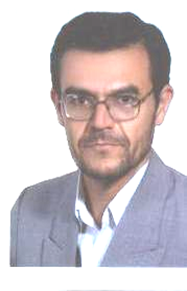
3- Dr. Said Yusuf Mousavi
Administrative position: Vice President of Research and Technology
Degree: Ph.D
Field of study: Physiology
Academic rank: Professor
.
.
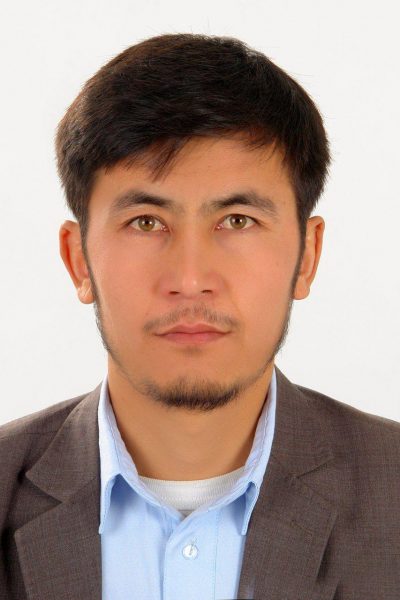
4- Dr. Mohammad Latif Nazari
Administrative position: Head of Public Health Department
Education degree: Master’s degree
Field of Study: Medical Science
Academic rank: Professor
.
.
5- Dr. Saifullah Niazi
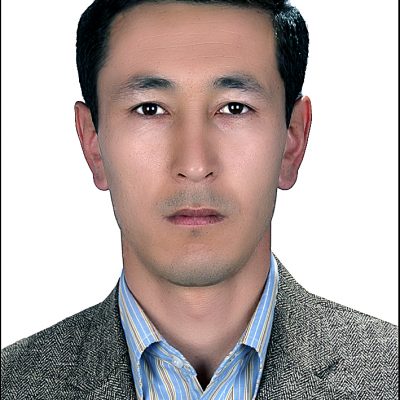
Administrative position:
Education level: Master
Field of study: Medical Science
Academic rank: Professor
.
.
6- Dr. Khan Ali Mohammadi
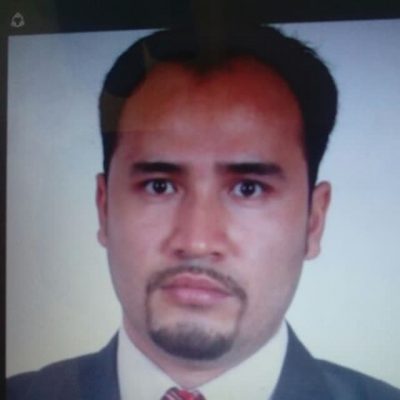
Administrative position: Head of Public Health Department
Education Level: Ph.D
Field of study: Public Health
Academic rank: Professor
.
.
7- Musa Bashir
Administrative position:
Education degree: Master
Field of study: Health Education
Academic rank: Professor
Introduction of departments

1. Interior Department
Head of the Department: Dr. Mohammad Jawad Jawad
Education degree: Cardiologist
Academic rank: Professor
Contact number: 0771112600
Click here to get the old information brochure of the Department of Interior.
.
.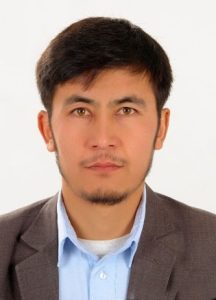
2. Department of Public Health
Head of the Department: Dr. Mohammad Latif Nazari
Degree: Master of Pharmacology
Scientific rank: Professor
Contact number: 0793323190
Click here to get the old information brochure of the Department of Public Health.
Translation of Medical Science curriculum goes here …!
For registration and admission or to contact the faculty, please use the phone number or email address below:
Contact number: 0771112600
Email address: medical.faculty@knu.edu.af / m.jawad@knu.edu.af
Education fees and expenses
Field: Medical Science
Main fee: 55,000 Afghanis
Discount percentage: 27.3 percent (27.3%)
Payable fee: 40,000 Afghanis
Description: The tuition fee for the medical field is 55,000 afghanis per semester, and with a 20% discount in the semester of 1400, it is 44,000 afghanis. In 1401, according to the economic situation of the society and the country, the fee of this course has been reduced to 40 thousand Afghanis per semester.
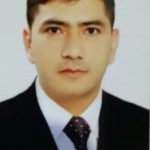
1. Office Director
Full name: Hamed Ashna
Date of birth: 10/08/1368
Phone number: ۰۷۴۴۳۸۵۵۵۳
Email Address: hamedashna۱۳۶۸@gmail.com
Field of study: Agriculture – Kabul University
Degree: Bachelor
.
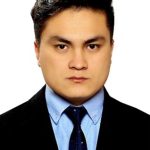
2. Faculty colleague
Full Name: Mehran Shayan
Phone number: 0779277547
E-mail: mehranshayan2@gmail.com
Degree: Bachelor
Field of study: Computer Science
.
3. Head of medical laboratories
Full Name: Ahmad Bashir Hemmati
Phone number: 0782151702
E-mail: ahmadbasirhemmati@gmail.com
Degree: Bachelor
Field of study: Medical Technology
.
.
Job Description:
- Arranging administrative correspondence related to the department
- Following up on approvals and letters from the department
- Coordination of meetings
- Obtaining the signatures of the members of the meeting at the right time
- Notification of approvals to committee members
- Archive of documents related to the faculty
- Responding to office clients and collecting their needs
- An overview of all office documents
- Archiving and indexing of previous documents of the office
- Coordination in holding briefing sessions
- Reviewing the activities included in the department’s plans, keeping in mind the time and notice to the relevant manager
- Cooperation in the evaluation of all programs
- Preparation of necessary reports for the department
- Other necessary items based on job descriptions and department orders